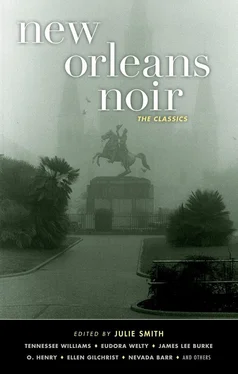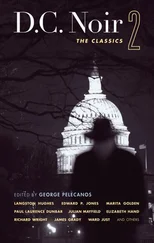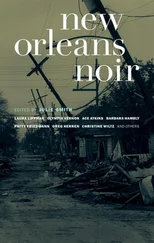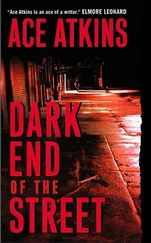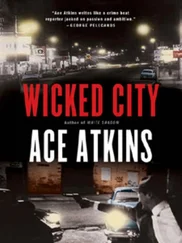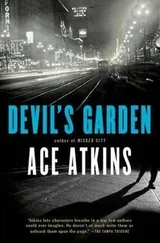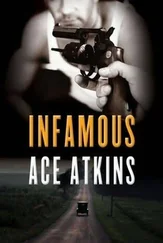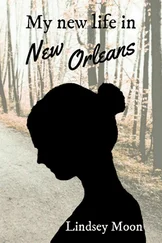Ace Atkins - New Orleans Noir - The Classics
Здесь есть возможность читать онлайн «Ace Atkins - New Orleans Noir - The Classics» весь текст электронной книги совершенно бесплатно (целиком полную версию без сокращений). В некоторых случаях можно слушать аудио, скачать через торрент в формате fb2 и присутствует краткое содержание. Город: New York, Год выпуска: 2016, ISBN: 2016, Издательство: Akashic Books, Жанр: Детектив, на английском языке. Описание произведения, (предисловие) а так же отзывы посетителей доступны на портале библиотеки ЛибКат.
- Название:New Orleans Noir: The Classics
- Автор:
- Издательство:Akashic Books
- Жанр:
- Год:2016
- Город:New York
- ISBN:978-1-61775-384-8
- Рейтинг книги:3 / 5. Голосов: 1
-
Избранное:Добавить в избранное
- Отзывы:
-
Ваша оценка:
- 60
- 1
- 2
- 3
- 4
- 5
New Orleans Noir: The Classics: краткое содержание, описание и аннотация
Предлагаем к чтению аннотацию, описание, краткое содержание или предисловие (зависит от того, что написал сам автор книги «New Orleans Noir: The Classics»). Если вы не нашли необходимую информацию о книге — напишите в комментариях, мы постараемся отыскать её.
takes a literary tour through some of the darkest writing in New Orleans history.
New Orleans Noir: The Classics — читать онлайн бесплатно полную книгу (весь текст) целиком
Ниже представлен текст книги, разбитый по страницам. Система сохранения места последней прочитанной страницы, позволяет с удобством читать онлайн бесплатно книгу «New Orleans Noir: The Classics», без необходимости каждый раз заново искать на чём Вы остановились. Поставьте закладку, и сможете в любой момент перейти на страницу, на которой закончили чтение.
Интервал:
Закладка:
So this first resolution is a calm one: she will wait for her husband and he will return and she will take him back.
She sets the cup down roughly on the table, for the inevitable question is upon her: how long can she wait? This has been going on for two months, and she is sick of waiting. There must be something she can do. The thought of action stiffens her spine, and her jaw clenches involuntarily. Now comes the terrible vision of her revenge, which never fails to take her so by surprise that she sighs as she lays herself open to it; revenge is her only lover now. She will see a lawyer, sue Ivan for adultery, and get every cent she can out of him, everything, for the rest of his life. But this is unsatisfactory, promising, as it does, nothing better than a long life without him, a life in which he continues to love someone else. She would do better to buy a gun and shoot him. She could call him late at night, when the other woman is asleep, and beg him to come over. He will come; she can scare him into it. And then when he lets himself in with his key she will shoot him in the living room. He left her, she will tell the court. She bought the gun to protect herself because she was alone. How was she to know he would let himself in so late at night? He told her he was never coming back and she had assumed the footsteps in the living room came from the man every lonely woman lies in bed at night listening for, the man who has found out her secret, who knows she is alone, whose mission, which is sanctioned by the male world, is to break the spirit if not the bones of those rebellious women who have the temerity to sleep at night without a man. So she shot him. She wasn’t going to ask any questions and live to see him get off in court. How could she have known it was her husband, who had abandoned her?
Yes, yes, that would work. It would be easily accomplished, but wouldn’t she only end up as she was now? Better to murder the other woman, who was, after all, the cause of all this intolerable pain. She knew her name, knew where she lived, where she worked. She had called her several times just to hear her voice, her cheerful hello, in which Lydia always heard Ivan’s presence, as if he were standing right next to the woman and she had turned away from kissing him to answer the insistent phone. Lydia had heard of a man who killed people for money. She could pay this man, and then the woman would be gone.
The kettle is screaming; she has forgotten to turn off the flame. So she could drink another cup of coffee, then take a bath. But that would take only an hour or so and she has to get through the whole day. The silence in the house is intense, though she knows it is no more quiet than usual. Ivan was never home much in the daytime. What did she do before? It seems to her that that life was another life, one she will never know again, the life in which each day ended with the appearance of her husband. Sometimes, she admitted, she had not been happy to see him, but her certainty that she would see him made the question of whether she was happy or sad a matter of indifference to her. Often she didn’t see him until late at night, when he appeared at one of the clubs where she was singing. He took a place in the audience and when she saw him she always sang for him. Then they were both happy. He knew she was admired, and that pleased him, as if she were his reflection and what others saw when they looked at her was more of him. Sometimes he gave her that same affectionate look he gave himself in mirrors, and when he did it made her lightheaded, and she would sing, holding her hands out a little before her, one index finger stretched out as if she were pointing at something, and she would wait until the inevitable line about how it was “you” she loved, wanted, hated, couldn’t get free of, couldn’t live without, and at that “you” she would make her moving hands be still and with her eyes as well as her hands she would point to her husband in the crowd. Those were the happiest moments they had, though neither of them was really conscious of them, nor did they ever speak of this happiness. When, during the break, they did speak, it was usually to argue about something.
She thinks of this as she stares dully at the dogs, Ivan’s dogs. Later she will drive through the cold afternoon light to Larry’s cold garage, where they will rehearse. They will have dinner together; Larry and Simon will try to cheer her up, and Kenneth, the drummer, will sit looking on in his usual daze. They will take drugs if anyone has any, cocaine or marijuana, and Simon will drink a six-pack of beer.
Then they will go to the club and she will sing as best she can. She will sing and sing, into the drunken faces of the audience, over the bobbing heads of the frenzied dancers; she will sing like some blinded bird lost in a dark forest trying to find her way out by listening to the echo of her own voice. The truth is that she sings better than she ever has. Everyone tells her so. Her voice is so full of suffering that hearing it would move a stone, though it will not move her husband, because he won’t be there. Yet she can’t stop looking for him in the audience, as she always has. And as she sings and looks for him she will remember exactly what it was like to find herself in his eyes. That was how she had first seen him, sitting at a table on the edge of the floor, watching her closely. He was carrying on a conversation with a tired-looking woman across from him but he watched Lydia so closely that she could feel his eyes on her. She smiled. She was aware of herself as the surprising creation she really was, a woman who was beautiful to look at and beautiful to hear. She was, at that moment, so self-conscious and so contented that she didn’t notice what an oddity he was, a man who was both beautiful and masculine. Her attachment to his appearance, to his gestures, the suddenness of his smile, the coldness of his eyes, came later. At that moment it was herself in his eyes that she loved; as fatal a love match as she would ever know.
The phone rings. She hesitates, then gets up and crosses to the counter. She picks up the receiver and holds it to her ear.
“Hello,” Ivan says. “Lydia?”
She says nothing.
“Talk to me!” he exclaims.
“Why should I?”
“Are you all right?”
“No.”
“What are you doing?”
“Why are you calling me?”
“About the dogs.”
“What about them?”
“Are they okay?”
She sighs. “Yes.” Then, patiently, “When are you coming to get them?”
“I can’t,” he says. “I can’t take them. I can’t keep them here.”
“Why?”
“There’s no fenced yard. Vivian’s landlord doesn’t allow dogs.”
At the mention of her rival’s name, Lydia feels a sudden rush of blood to her face. “You bastard,” she hisses.
“Baby, please,” he says, “try to understand.”
She slams the receiver down into the cradle. “Bastard,” she says again. Her fingers tighten on the edge of the counter until the knuckles are white. He doesn’t want the dogs. He doesn’t want her. He isn’t coming back. “I really can’t stand it,” she says into the empty kitchen. “I don’t think I will be able to stand it.”
She is feeding the dogs. They have to eat at either end of the kitchen because Spats will eat Gretta’s dinner if he can. Gretta has to be fed first; then Spats is lured away from her bowl with his own. Gretta eats quickly, swallowing one big bite after another, for she knows she has only the time it takes Spats to finish his meal before he will push her away from hers. Tonight Spats is in a bad humor. He growls at Gretta when Lydia sets her bowl down. Gretta hangs her head and backs away. “Spats!” Lydia says. “Leave her alone.” She pushes him away with one hand, holding out his bowl before him with the other.
Читать дальшеИнтервал:
Закладка:
Похожие книги на «New Orleans Noir: The Classics»
Представляем Вашему вниманию похожие книги на «New Orleans Noir: The Classics» списком для выбора. Мы отобрали схожую по названию и смыслу литературу в надежде предоставить читателям больше вариантов отыскать новые, интересные, ещё непрочитанные произведения.
Обсуждение, отзывы о книге «New Orleans Noir: The Classics» и просто собственные мнения читателей. Оставьте ваши комментарии, напишите, что Вы думаете о произведении, его смысле или главных героях. Укажите что конкретно понравилось, а что нет, и почему Вы так считаете.
